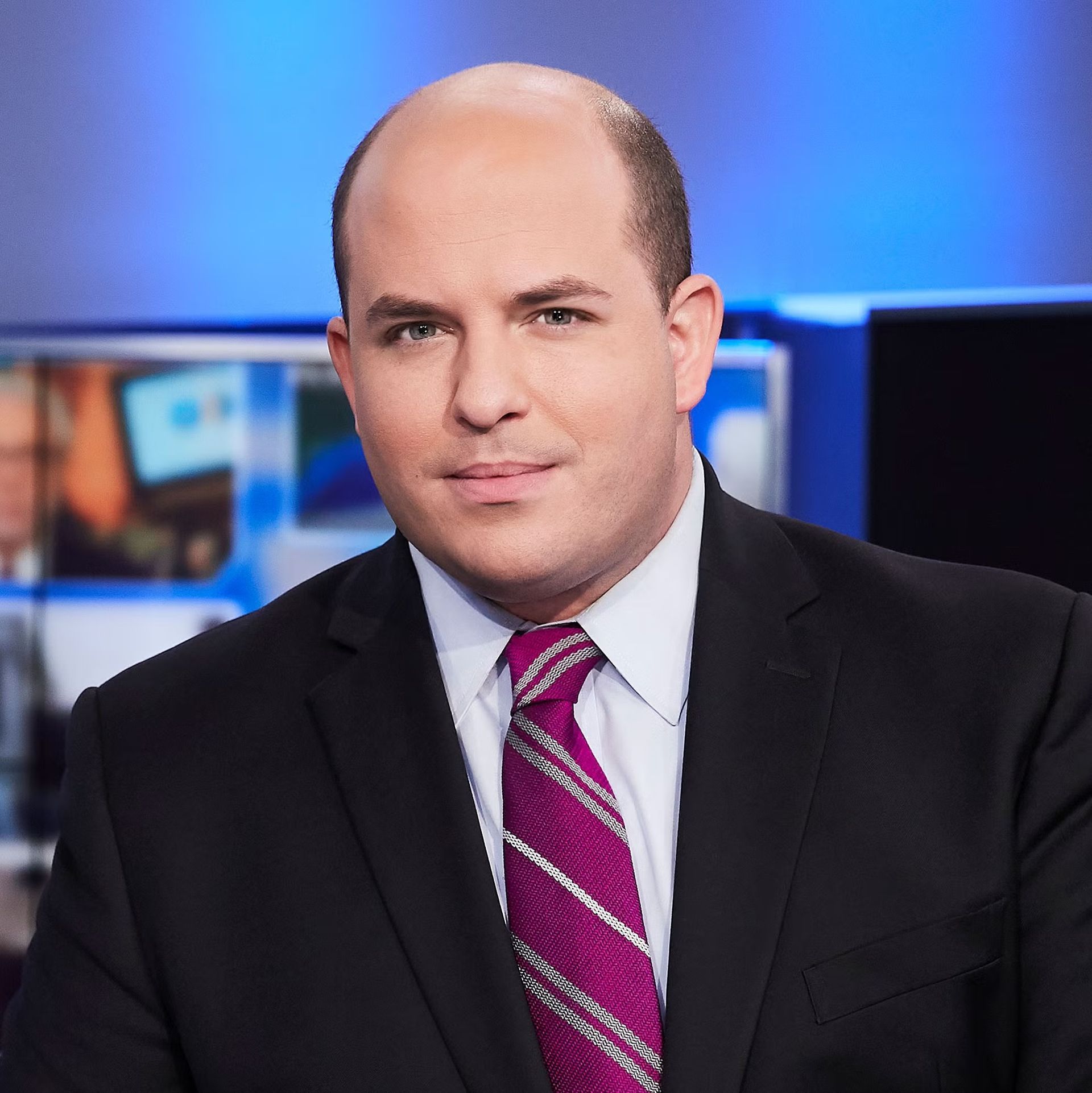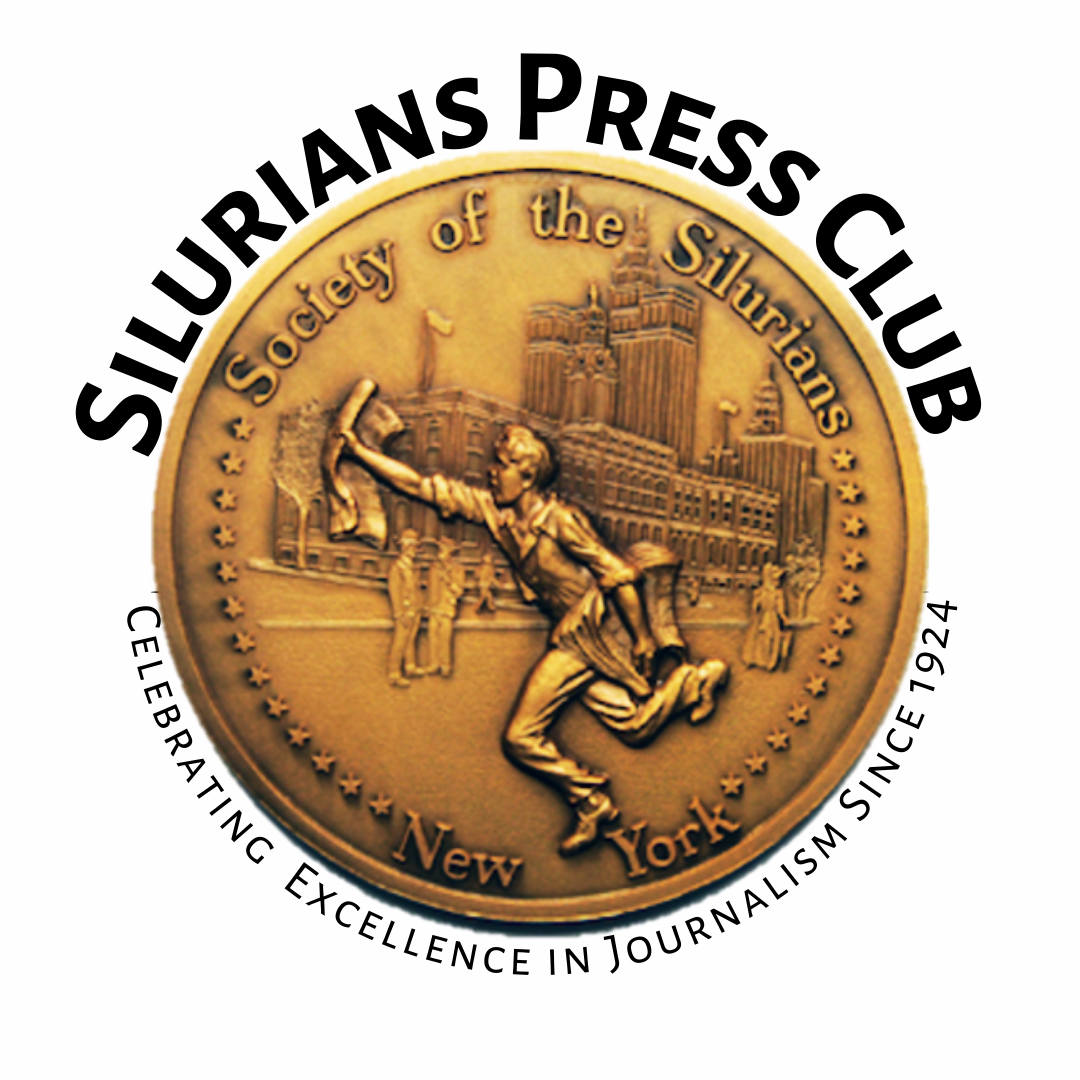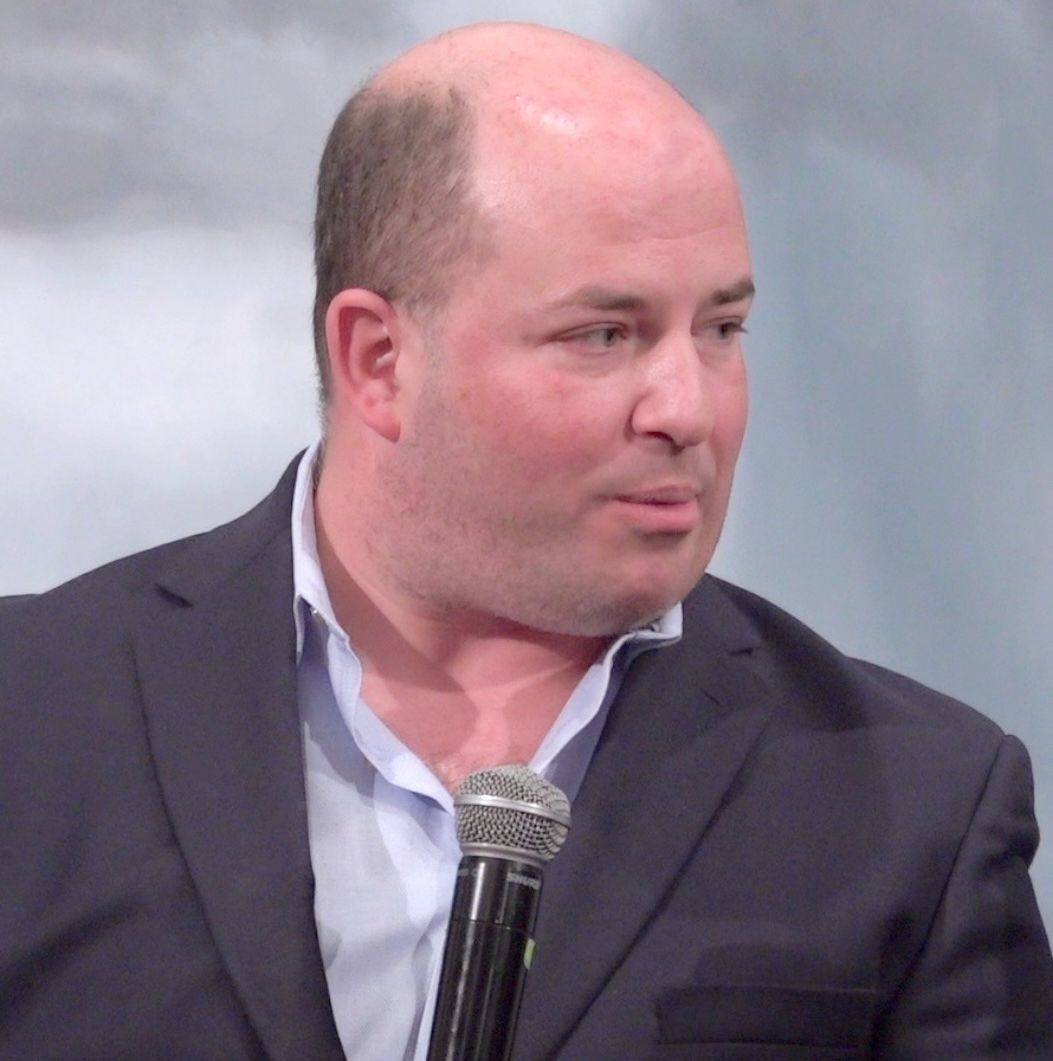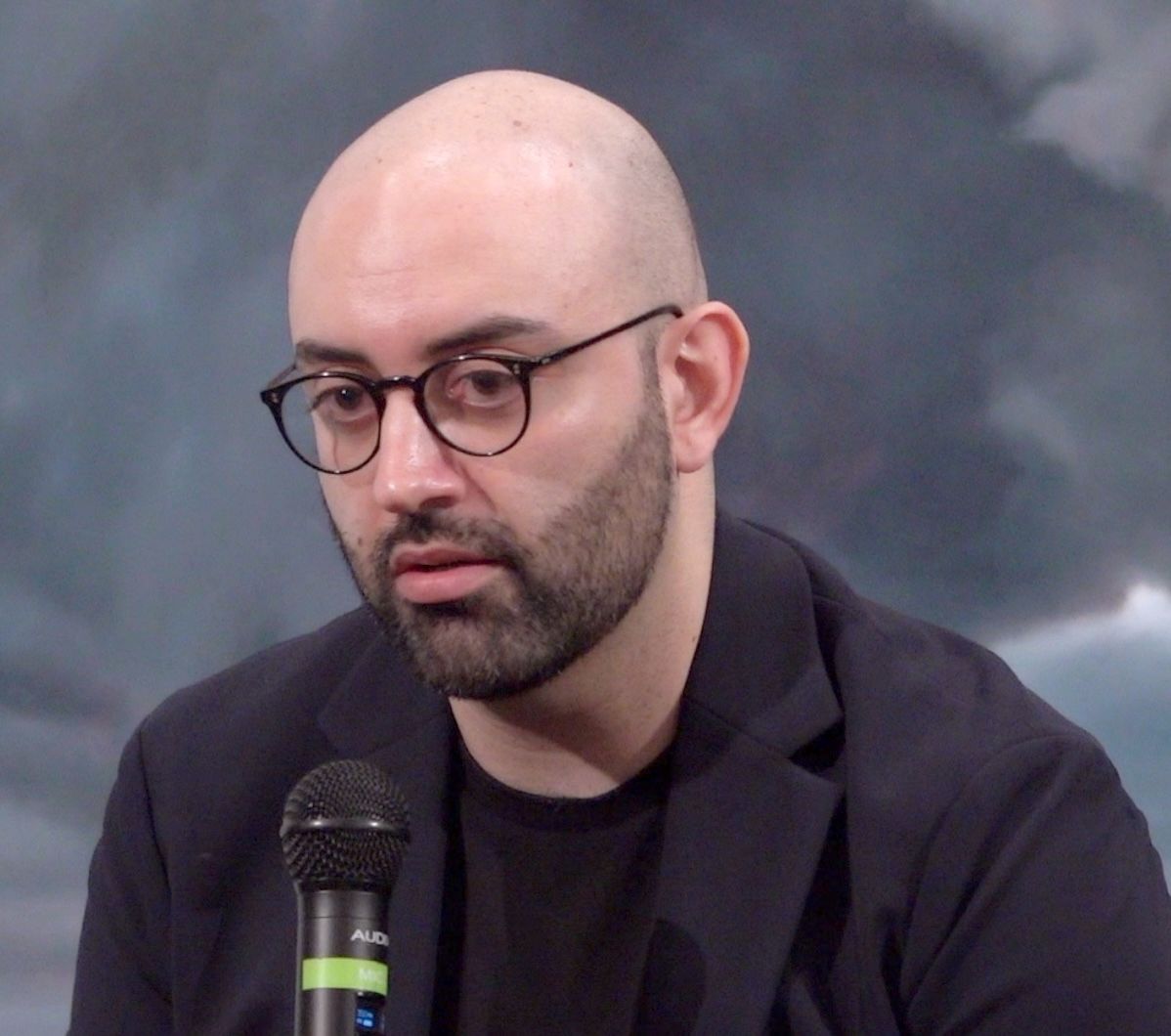
Brian Stelter
Press Under Siege: Media Experts Assess the Impact of Trump’s Attacks
By Mel Laytner
In an afternoon of lively give-and-take, two leading observers of the national news media offered bleak and contrasting assessments of the challenges confronting the press today, from relentless attacks by President Donald Trump to collapsing business models.
They offered reasons for despair and some rays of hope. Brian Stelter, chief media analyst for CNN, and Oliver Darcy, publisher of the highly regarded Status newsletter, spoke before a rapt Silurians luncheon on March 19.
Moderator and Silurian Board member Carol Lawson set the tone with a “scary thought,” that “we have an American president who hates the free press and is doing everything he can to destroy it.” Turning to Stelter and Darcy, she asked, “How do you see this moment of Trump in the press and what worries you the most?”
Stelter demurred to Darcy because, he said, Darcy was “going to be even more of a downer,” and then he, Stelter, would lighten things up “in the spirit of the afternoon.”
Darcy did not disappoint. The situation, he said, was “extremely alarming because not only is the press under sustained assault from the White House and the federal government and the Republican Party…but the business models that have been underpinning the press are also just collapsing.” He described the digital ad environment for publishers as horrendous.
"At the time that you would want the press to be at its strongest, really, it’s at its weakest,” Darcy said.
Trump compounds these challenges, Darcy said, especially for the television networks, because their parent companies may want to merge or do deals and are therefore beholden to the federal government. He said the threat of anti-trust actions and government regulators are a kind of lever Trump can use against media companies.
Darcy cited Sherry Redstone and Paramount’s efforts to settle Trump’s lawsuit against 60 Minutes as an example.
“It's bigger than CBS News,” Darcy said. “Paramount needs to merge with Skydance to survive in the current media environment…When you start looking at it from that perspective, the business models crumbling, you kind of understand a little more about what's actually happening behind the scenes of these bigger companies. I think it's very worrisome.”
Stelter was somewhat less pessimistic.
Noting that Paramount had not settled, Stelter said, “it also notable that every Sunday 60 Minutes goes out there and swings its bat and hits a home run over the fence with a damning report about what the President’s doing to the government…60 Minutes is putting on a master class in journalism.”
Stelter harkened back to 2017 when Trump first referred to the press as an enemy of the people. “He was still learning a new language, the language that we saw from Nazi Germany, used to denigrate and demean the press. He was starting to learn the language he was going to use in his first term that he now uses in the second term.”
That weekend Stelter said he went on the air told his CNN audience, “The American press is stronger than any demagogue, period. And I still believe that's true today in 2025. I believe it was proven true in 2018 and 2019 and 2020. I think most people, most Americans, most Trump voters, saw through his lies and attack.”
However, Stelter said the premise that what the mainstream media chooses to report or omit about Trump can affect the nation was wrong. “We have to be really honest with ourselves, that half of the country has opted out of the American mainstream media and is opted into a different form of information.” Darcy nodded in agreement.
But when Darcy pointed to Jeff Bezos’ limiting the Washington Post’s opinion section, Stelter cut in, “And yet the Washington Post is crushing it, right? Breaking story after story about Trump. This is where I want to distinguish between the individual and the institution.”
Moderator Lawson asked the panelists whether they see evidence of self-censorship by the press. She specifically mentioned the hiring of commentator Scott Jennings, an ardent Trump supporter, by CNN as an attempt to curry favor.
Darcy: ““Scott Jennings is there is because the network wants a pro-Trump voice, and it's not hard to do the math on why they want that pro-Trump voice there…I don't really see any journalistic purpose for him.”
Stelter: “I think the journalistic purpose is to represent what is happening in the country and that, yes, there is no shared reality. And yes, we're broken in all these ways. Let’s show (the country) how we're broken.”
Stelter then turned to Darcy: “Do you think I've gone soft?”
Darcy to Stelter: “I think at times you could be a little tougher on people…”
Stelter: “Do you think there's a point at which being tougher backfires?”
Darcy: “I don’t know…My view is the press should tell the truth. Should do it without fear or favor. If that alienates audiences—it's impossible to capture the entire country.”
Both panelists agreed it was impossible to say how far Trump would go in his anti-press campaign but expected more civil lawsuits against media outlets and pollsters, tax audits of news organization and individual journalists, more investigations by federal agencies like the FCC.
Stelter said that while individual journalists have not yet been subjected to the most severe harassment, he expects that to change. “As his [Trump’s] popularity declines,” Stelter said, “the attacks will increase.”
“The number one thing that the press can do is, do it right, to be honest, to be careful," Stelter said. "To raise our own game to make sure that we know exactly what we're doing…And take that as a challenge, right to raise our own game to make sure that we know exactly what we're doing.”




